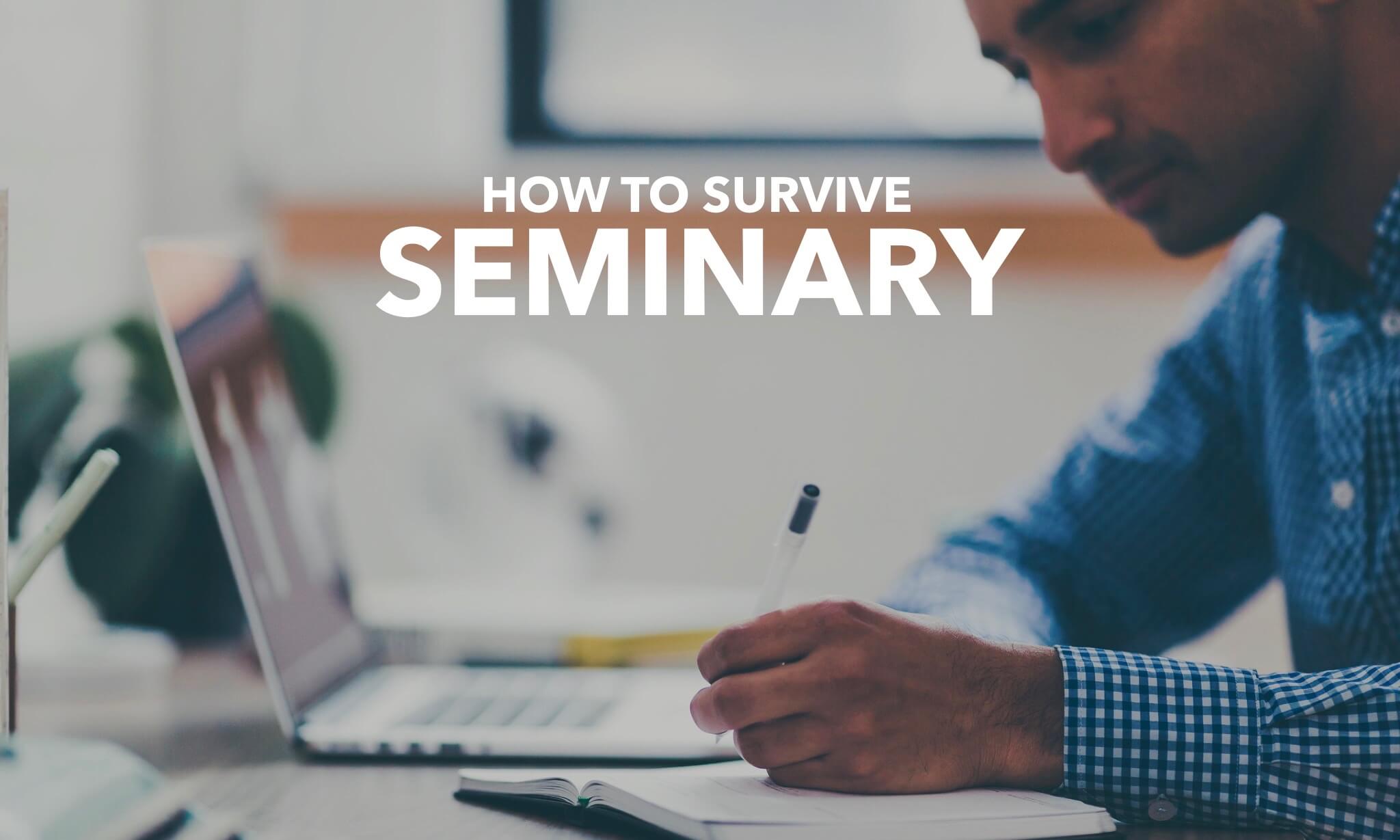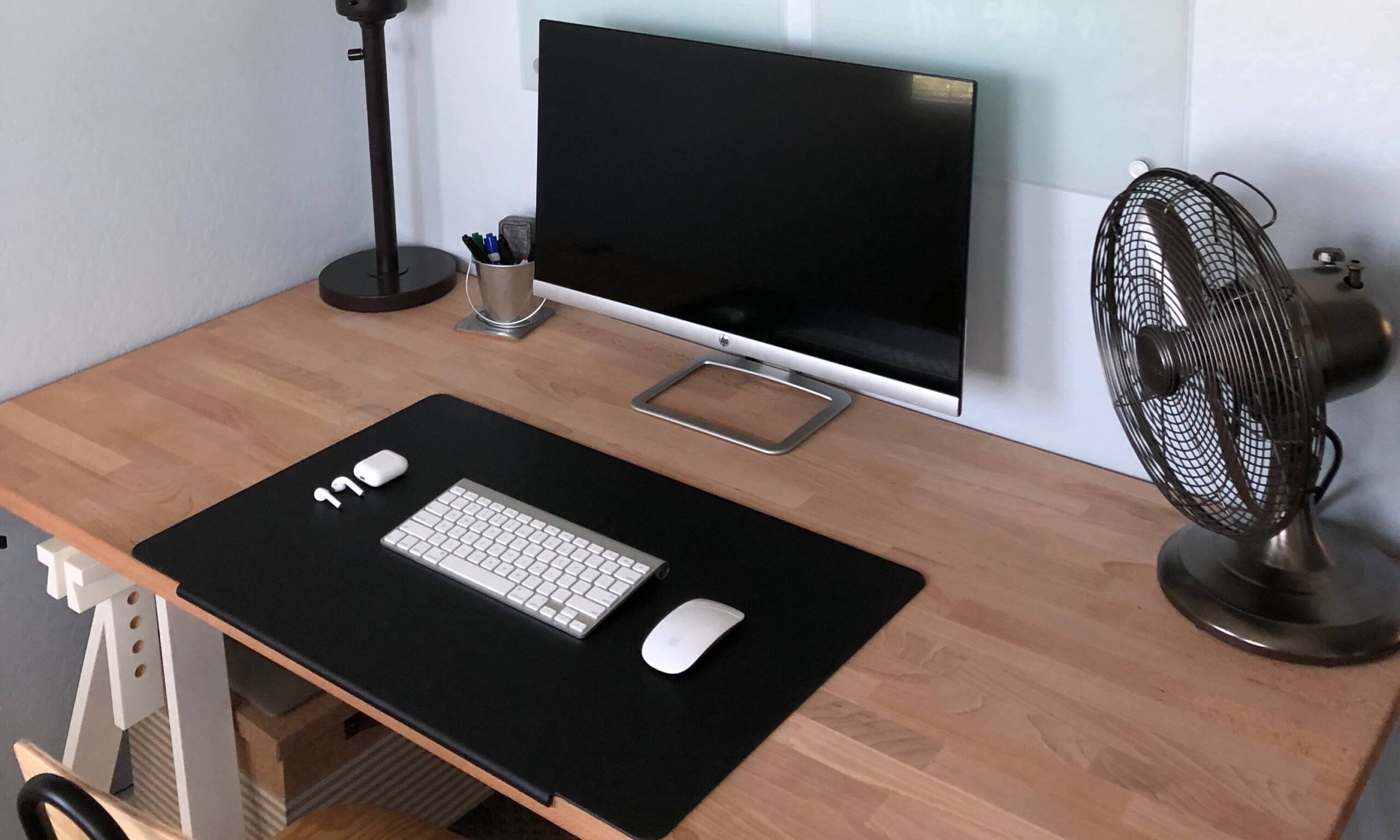How to Survive Seminary: 15 Practical Tips
I took two attempts to finish seminary.
My first attempt was short-lived because I didn’t set myself up for success. In my second attempt, I graduated with honors.
In my first attempt, I dropped out in the first semester because I had too much going on: a job transition, moving, the premature birth of my son, lack of sleep, and recovering from burnout.
All this led me to be less organized and unprepared for the intense focus that seminary requires.
My grades were good, but I couldn’t sustain the workload because my life was in chaos. I wasn’t ready.
A few years later, I enrolled in seminary again with renewed focus. I applied what I learned from my first mistakes, and it changed the game.
If you are struggling through seminary or thinking about enrolling, I know how it feels. Here are some of the tips that helped me. I pray they help you too.
1. Stay Humble
“Knowledge puffs up” (1 Cor 8:1).
Pride is the biggest threat to seminary students.
You’ll be tempted to think you are smarter than everyone else because you have more knowledge than they do. Remember who you were before Christ, how Christ saved you, how you fall short every day.
If your knowledge doesn’t lead to a greater love for people, pride has taken over.
2. See Your Work as Worship
It’s easy to lament the burden of the hours of reading, lectures, and papers. But dreading the work isn’t going to help.
Flip your perspective and see your study as worship.
When you study, you are pondering the infinite glory and wonders of God. It should compel you to worship.
3. Read Every Page Assigned
You may have been able to pass your high school English class without reading the book, but that won’t work in seminary.
There will be days that you feel buried under a mountain of books. Too many students solve the problem by not reading all of them. But if you don’t read the assignments, it’ll show on the test and in your papers.
Seminary will test your character. Will you do the work or cut corners? Don’t cheat yourself.
4. Don’t Speed Read
This won’t be popular, because it seems that everyone else recommends learning to speed read.
I’ve tried it, but it’s another way of trying to cut corners.
The books you’ll read in seminary are thick and meaty.
Speed reading in seminary is like trying to swallow a porterhouse steak in as few bites as possible. It may be possible, but you’re more likely to choke.
If you want to get the most out of them, you need to read slow. You won’t comprehend it if you rush.
You’ll need to pause and chew on a complex thought. Other times, you’ll need to think about counterarguments against ideas you encounter that are wrong.
Don’t rush the reading just because it takes time. Invest the time, read slow, and take it all in.
5. Take Notes
Don’t rely on a professor’s handouts or PowerPoint outline alone. Take your own notes.
I prefer digital notes because I type faster than I write. I can read it better than my chicken scratch handwriting. I can access them anywhere. Plus, I can search them quicker.
You could also handwrite them and scan them later with an app like Scannable.
Plus, I know some pastors who still use their seminary notes for sermon preparation.
6. Walk While Reading
One of my greatest obstacles in seminary was staying awake while reading boring books.
I’d come home from a long day of work, spend a little time with my family, and sit down for a late-night reading session. Before long, I’d wake up with drool on my chin, wondering what happened.
Coffee helped a bit, but the best trick I learned was to keep moving. I read most of my books while plodding around the house.
You won’t fall asleep on your feet. It’ll increase focus, and a little extra walking is good for you.
So the next time you start nodding off, stand up and walk around.
7. Pace Yourself
In your excitement to graduate as fast as possible, you’ll be tempted to take on a bigger workload than you can handle.
Don’t.
Think about how much time you have each week to devote to your studies and only take enough courses to be completed in that time.
If you don’t know how many hours a week each course should take, ask an advisor at your school. It’ll probably be more than you think.
8. Buy Electronic Books When Available
I prefer Kindle books. Not all your required texts will be available on Kindle. But if it is, there are a few benefits of Kindle books.
First, Kindle can be cheaper (unless you buy used books).
Second, you can search the entire book in seconds for anything you were looking for. So if you’re looking for the answer to a question or more information about a topic, you can find it in no time.
Third, you can highlight important sections and make notes. Your highlights and notes will save time when studying for a test or doing research for a paper.
Fourth, the built-in dictionary will come in handy. You’ll need it to understand the antiquated vocabulary words that scholars love. For some books, I needed it on every other page.
Even better, if you can afford it or get your church to help you, get Logos Bible Software and invest in Logos books. They aren’t always as affordable as Kindle books—although Logos often has great sales—but Logos is a powerful tool for preaching, teaching, and studying the Bible. I use it every day.
9. Schedule Your Assignments
On the first day of class, when you get your syllabus, do yourself a favor and add all the assignments and their due dates into a task manager.
I’d recommend Todoist. It’s simple to use but powerful.
Add all the big assignments first. Don’t forget to add your reading assignments too.
At first, the list is intimidating, but when you get near the end of the semester, and you see it getting smaller, it feels incredible.
10. Work Ahead
Don’t just schedule the day they are due. Otherwise, you’ll get in the habit of trying to do too much in the final hours of a deadline.
Instead, schedule them for the day you will do them.
For example, if you have a reading assignment due Thursday night, but you have time in your schedule to read on Tuesday, schedule it then.
Also, add subtasks for big projects. For a paper, you may want to schedule research three weeks before, an outline two weeks before, and the first draft of the paper one week before.
11. Use Grammarly
You’re going to be doing a lot of writing, and you will lose points for grammatical and spelling errors.
Grammarly is a fantastic spelling and grammar checker, that will be your secret weapon against the grammar police. Run everything you write through it before submitting.
Trust me. This will make your life easier, and your grades better.
The free version is great, but the paid version is better if you can afford it.
12. Get Help Proofreading
Grammarly is excellent, but it won’t catch every mistake and neither will you. So find someone else to help with proofreading.
My wife and I joke that she got a second-hand seminary degree because she read all my papers.
You may also find a fellow student who you can swap papers with for help.
13. Write Multiple Drafts
Many students’ final drafts are their first draft. That may have cut it in your undergrad program, but not in graduate school.
Great writing is rewriting.
Here’s a process I like to follow with my papers:
- Research
- Outline
- First draft
- Second draft
- Proofreader edit
- Grammarly final edit
- Submit
14. Block Off Priorities
Your schedule is likely packed, so you need to prioritize the big things first.
Block out time in your calendar for family, church, work, and then time for study.
Be prepared to cut down on entertainment. If you don’t have any time left over, things like Netflix, going to the movies, and video games will have to go.
Your other priorities need to come first.
15. Exercise
Don’t just build your brain and neglect your body.
Your physical health and mental health are linked.
When you are stressed out, and your head is foggy, going for a walk, riding a bike, playing a sport, or heading to the gym is very helpful.
When you are living in a mental world all day, getting out and doing something physical feels fantastic and will clear your head, helping you do better work.
In fact, when I’m stuck writing a paper, some of my most clarifying thoughts have come on a run or in the shower.
You Can Survive Seminary
There’ll be days you want to give up. Don’t make the same mistake I did.
Instead, take a step back, look at your systems for getting the work done, and identify the problem.
I pray this list will help.
And if you’re a seminary veteran, help us out: What tips would you give?







Currently in Sem right now, getting a Master’s in Christian Ministry through Liberty. My program was 36 credit hours and I will be finished in December.
The reading is a huge part and I LOVE LOGOS!!! (not a sponsor), the citations have helped tremendously. Staying humble is a big key especially when you are learning about deuteronomistic redaction theory and Predestinarian election in Second Temple Judaism!
Thanks for the tips and your ministry.
Great points, I do see some issues a little different.
-I highly recommend some form of speed reading. Not all paragraphs are equal.
-Go to seminary when your older and you have spent some time in another career field. Obviously this is by no means mandatory, and my experience is only one person. But I can tell you that I sensed I viewed seminary somewhat different than my younger classmates.
-If looking to the pastorate and not PhD work, think about learning and not grades. I contracted in one of my classes for a C. I still learned a lot and kept my sanity (which my family appreciated).
Hey Doug, that’s good advice. I respect your stance on speed reading, and your other suggestions are spot on. I can attest to your point about approaching seminary differently after having ministry experience under my belt. It seemed to me that the students with experience had a bit more grace and understanding of what people in the real world are going through.
Excellent points, Brandon! one addition to the concept of the dictionary in the kindle is a book that I just did a review on for Baker Books, which is The Baker Compact Dictionary of Biblical Studies” by Tremper Logman III and Mark L. Strauss. It would come in handy for the dictionary concept as well (and you can even buy it in ebook format if you like).
https://thechristianreviewer.wordpress.com/2018/05/29/compact-dictionary-of-biblical-studies/
Thanks for the suggestion.